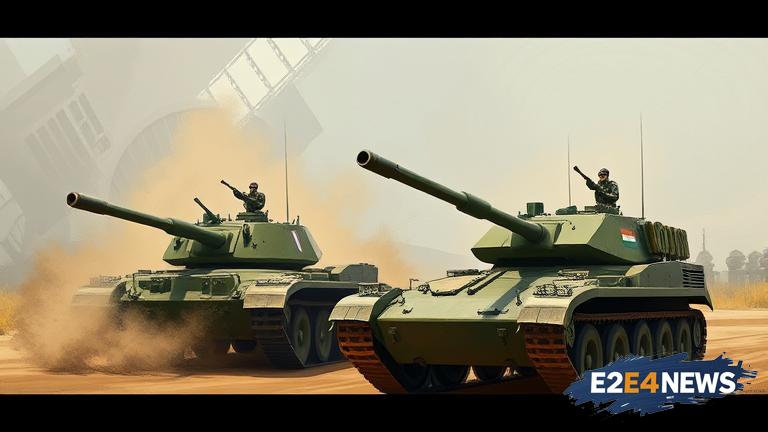India’s long-standing relationship with Russia has led to a significant dependence on Russian military equipment, which has become a crucial aspect of the country’s defense strategy. Despite the latest threat from US President Donald Trump, India cannot afford to decouple from Russian military equipment due to various reasons. One of the primary reasons is the vast array of Russian-made weapons and equipment that are already in use by the Indian military. The Indian Air Force, for instance, operates a large fleet of Russian-made Sukhoi Su-30MKI fighter jets, while the Indian Army uses Russian-made T-90 tanks and the Indian Navy operates Russian-made submarines. The sheer scale of these equipment and the associated maintenance and upgrade costs make it impractical for India to suddenly switch to alternative sources. Furthermore, India’s defense industry is still in its nascent stages, and the country lacks the capability to produce complex military equipment domestically. As a result, India has to rely on imports, and Russia has been a trusted and reliable partner in this regard. The two countries have a history of cooperation in the defense sector, dating back to the Soviet era, and Russia has been willing to transfer technology and provide India with access to advanced military equipment. However, the US sanctions imposed on Russia under the Countering America’s Adversaries Through Sanctions Act (CAATSA) have created a new challenge for India. The sanctions target countries that engage in significant transactions with Russia’s defense and intelligence sectors, and India’s purchase of the S-400 air defense system from Russia has raised concerns in Washington. Despite these challenges, India has made it clear that it will not compromise on its national security interests and will continue to engage with Russia in the defense sector. The Indian government has argued that the country’s defense requirements cannot be dictated by external factors and that it will take decisions based on its own national interests. In recent years, India has sought to diversify its defense imports and has signed deals with other countries, including the US, Israel, and France. However, Russia remains a critical partner, and India is unlikely to abandon its relationship with Moscow anytime soon. The Indian military has also been working to develop its own indigenous capabilities, including the development of the Tejas light combat aircraft and the Arjun main battle tank. However, these efforts are still in their early stages, and it will take time for India to develop a robust and self-sufficient defense industry. In the meantime, India will have to navigate the complex geopolitical landscape and balance its relationships with different countries. The US has been seeking to strengthen its ties with India and has offered to sell advanced military equipment to the country. However, India has been cautious in its approach and has sought to maintain its strategic autonomy. The country has also been engaging with other nations, including Russia and China, to promote its own interests and secure its position in the region. As the global geopolitical landscape continues to evolve, India will have to be mindful of its relationships with different countries and take decisions that are in its own national interests. The country’s dependence on Russian military equipment is a complex issue that will require careful management and diplomacy. India will have to work closely with Russia to ensure that its defense requirements are met while also navigating the challenges posed by US sanctions. At the same time, the country will have to engage with other nations to promote its own interests and secure its position in the region. The next few years will be critical for India as it seeks to balance its relationships with different countries and promote its own national interests. The country’s ability to navigate these challenges will have a significant impact on its future growth and development. India’s defense strategy will have to be carefully calibrated to take into account the complex geopolitical landscape and the country’s own national interests. The government will have to work closely with the military and other stakeholders to ensure that the country’s defense requirements are met while also promoting its own interests. The private sector will also have to play a critical role in the development of India’s defense industry, and the government will have to create an ecosystem that encourages innovation and entrepreneurship. As India seeks to promote its own national interests, it will have to be mindful of the challenges posed by the global geopolitical landscape. The country will have to work closely with other nations to promote its own interests and secure its position in the region. The next few years will be critical for India as it seeks to navigate the complex geopolitical landscape and promote its own national interests.
